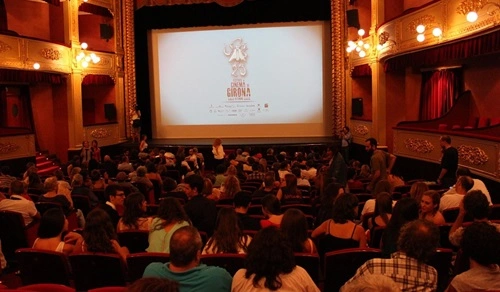Yes, it is illegal to record movies in a theater in the United States. The practice, commonly referred to as “camcording,” violates federal copyright laws and the Digital Millennium Copyright Act (DMCA). Recording movies in a theater can result in severe penalties, including fines and imprisonment.
Legal Framework Surrounding Recording Movies in Theaters
- Copyright Law
- Movies shown in theaters are protected by copyright laws under Title 17 of the United States Code.
- Unauthorized recording, reproduction, or distribution of copyrighted material constitutes copyright infringement.
- Family Entertainment and Copyright Act (FECA)
- Enacted in 2005, FECA criminalizes the act of using recording devices to capture movies in theaters.
- It specifically targets individuals who use camcorders or smartphones to record movies, whether for personal use or illegal distribution.
- Digital Millennium Copyright Act (DMCA)
- The DMCA, enacted in 1998, strengthens protections against digital piracy and prohibits unauthorized recording or copying of digital media.
- It provides additional penalties for distributing or uploading pirated content.
- State Laws
- Many states have enacted their own anti-camcording laws to further deter recording movies in theaters. For example:
- California Penal Code §653z explicitly prohibits recording movies in theaters and imposes penalties for violators.
- Many states have enacted their own anti-camcording laws to further deter recording movies in theaters. For example:
Penalties for Recording Movies in Theaters
- Federal Offenses
- Recording a movie in a theater can lead to federal charges.
- Penalties include fines up to $250,000 and imprisonment for up to three years for first-time offenders.
- Civil Liability
- In addition to criminal penalties, violators may face civil lawsuits from movie studios seeking damages for lost revenue.
- State-Level Penalties
- State laws often include fines and potential jail time for individuals caught recording in theaters.
- The severity of penalties may vary by state.
- Confiscation of Devices
- Devices used to record movies, such as smartphones or camcorders, may be confiscated and held as evidence.
Why Is Recording in Theaters Illegal?
- Economic Impact
- Piracy, including camcording movies in theaters, costs the film industry billions of dollars annually.
- The illegal distribution of pirated content undermines revenue from legitimate sales and rentals.
- Theft of Intellectual Property
- Recording a movie without permission infringes on the intellectual property rights of filmmakers, producers, and studios.
- Fair Competition
- Piracy creates an unfair playing field for legitimate businesses, including streaming platforms, DVD sales, and rental services.
How Theaters Enforce Anti-Piracy Laws
- Surveillance Systems
- Many theaters use night-vision cameras and other surveillance technologies to monitor audience behavior during screenings.
- Staff Training
- Theater staff are trained to identify and report suspicious activities, such as the use of recording devices during a movie.
- Collaboration with Law Enforcement
- Theaters often work closely with law enforcement and movie studios to prosecute offenders caught recording movies.
Legal Alternatives for Viewing Movies
- Streaming Services
- Legitimate streaming platforms like Netflix, Hulu, and Disney+ offer movies for legal viewing at home.
- Purchasing or Renting
- Buying or renting movies from licensed platforms ensures compliance with copyright laws.
- Attending Authorized Screenings
- Enjoy movies in theaters without attempting to record them, respecting the intellectual property of filmmakers.
Common FAQs
Q1. Can I record a short clip of a movie for personal use?
Ans: No, recording any part of a movie in a theater, even for personal use, is illegal under federal copyright laws.
Q2. Are the penalties severe for first-time offenders?
Ans: Yes, first-time offenders can face fines up to $250,000 and up to three years in prison, depending on the circumstances.
Q3. Can I record a movie in a theater if it’s for educational purposes?
Ans: No, recording movies in theaters is illegal, even if intended for educational use. Permissions must be obtained from the copyright holder.
Q4. What happens if I accidentally record part of a movie?
Ans: While intent matters, you could still face legal trouble if the recording is discovered. It’s best to delete the recording immediately and notify theater staff if necessary.
Q5. Is recording a movie trailer or preview illegal?
Ans: Yes, recording any content shown in a theater without permission is generally prohibited, including trailers and previews.
Conclusion
Recording movies in theaters is a clear violation of federal copyright laws and carries serious legal consequences. The prohibition is in place to protect the intellectual property rights of filmmakers and safeguard the economic interests of the film industry. To enjoy movies legally, audiences are encouraged to watch them in theaters or through authorized streaming and distribution platforms. Respecting these laws ensures a fair and sustainable entertainment ecosystem for all.


